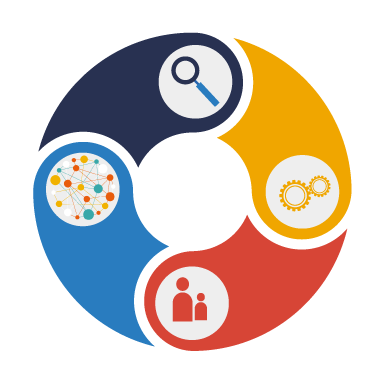The 3rd National Rare Diseases Symposium was Held in Izmir
The 3rd National Rare Diseases Symposium, one of Turkey’s most important gatherings in the field of rare diseases, was held on November 14, 2025, at the Dokuz Eylül University Sabancı Cultural Center in Izmir. With the participation of academia, public institutions, patient communities, and industry, the symposium presented a holistic assessment of the steps taken in the diagnosis, treatment, and management of rare diseases in our country, making a significant contribution to strengthening the national ecosystem.
The event began with opening remarks by Prof. Dr. Uğur Özbek and the IBG Director Prof. Dr. Ali Osman Kılıç. The opening emphasized the place of rare diseases within the Turkish healthcare system and the future implications of multidisciplinary collaborations.
The first session following the opening was chaired by Dr. Murat Gülşen (Head of the Autism, Special Needs, and Rare Diseases Department at the Ministry of Health of the Republic of Turkey) and Prof. Dr. Munis Dündar (Erciyes University) which discussed Turkey’s national strategies in the field of rare diseases. Dr. Hikmet Can Çubukcu from the Turkish Ministry of Health explained the preparation process and implementation steps of Turkiye’s Rare Diseases Action Plan, while Dr. Yüksel Hakan Aydoğmuş, also from the Ministry of Health, evaluated the scope of newborn screening programs and their importance for early diagnosis. Dr. Tunç Tuncel from TÜSEB presented studies conducted on the genomic infrastructure of rare diseases as part of the Turkish Genome Project and shared the future implications of establishing a national genome database.
The second panel brought together rare disease platforms from Turkey’s leading universities. The session was chaired by Prof. Dr. Ercan Mıhçı and Prof. Dr. Haluk Akın. Prof. Dr. Özden Hatırnaz Ng presented a comprehensive assessment of the ACURARE’s ISTiSNA Project, and the operation of the Undiagnosed Patient Platform. Prof. Dr. Uğur Özbek introduced the impact of the RareBoost Project in the Aegean Region and IBG’s relevant research infrastructure. Prof. Dr. Tuba Eminoğlu described the establishment, research, and training activities of the Ankara University Rare Diseases Application and Research Center, while Prof. Dr. Gülden Gökçay presented the services and research activities in the field of rare diseases conducted at Istanbul University.
The next session, “Treatable Rare Diseases,” chaired by Prof. Dr. Özgür Çoğulu, Prof. Dr. Semra Hız, and Prof. Dr. Gökay Bozkurt, presented Turkey’s current clinical experience in treatable rare diseases. Prof. Dr. Musa Karakükçü summarized current applications in ex vivo and in vivo gene therapies, while Prof. Dr. Uluç Yiş shared the diagnosis and treatment processes in rare neurological diseases. Prof. Dr. Nihal Mete Gökmen evaluated diagnostic and therapeutic approaches for hereditary angioedema.
The final panel of the day focused on the current status and potential of clinical research for rare diseases in Turkey. In the session moderated by Prof. Dr. Hamdi Akan, Prof. Dr. Okay Çağlayan, and Prof. Dr. Erdener Özer, Prof. Dr. Yeşim Tunçok evaluated the opportunities and challenges encountered in clinical research, while Prof. Dr. Fatih Ezgü shared his field experiences from a researcher’s perspective. Representing the industry, Dr. Umut Müren, Sanofi Clinical Research Manager, shared the pharmaceutical industry’s perspective on Turkey’s clinical research, its participation in the processes, and suggestions for increasing capacity.
The 3rd National Rare Diseases Symposium created an important knowledge-sharing environment within Turkey’s rare disease ecosystem with scientific presentations, discussions, and multifaceted assessments that continued throughout the day. The symposium was successfully completed, providing valuable outputs in terms of strengthening national strategic planning, encouraging clinical research, increasing multi-center collaborations and supporting public awareness of rare diseases.





































